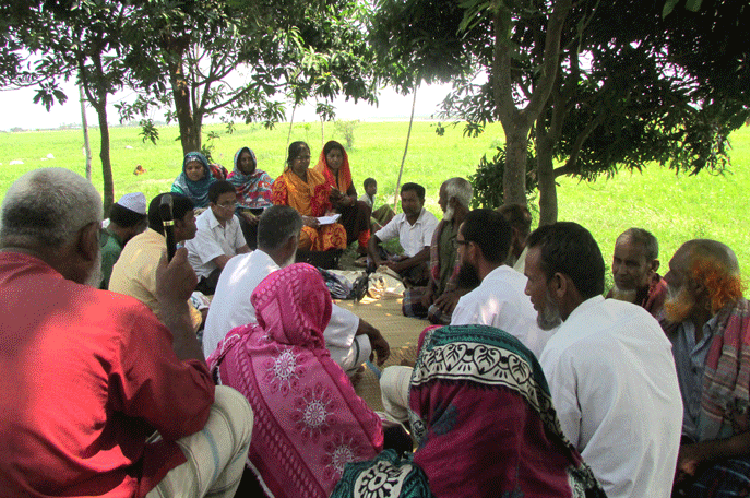Sensitization of Farmers on Good Agricultural Practices, Code of Practices and Food Safety

Food safety is one of the most important issues in Bangladesh. With a view to assuring the availability of safe food, Food and Agricultural Organization (FAO) of the UN is supporting Beez Bistar Foundation (BBF) for “Creating public awareness on Good Agricultural Practices (GAP), Code of Practices (COP) and Food Safety”. The activities are implemented for sensitization of 100,000 farmers in 12 districts on GAP, COP and Food Safety since February, 2017.
Good Agricultural Practice (GAP)
GAP includes a set of principles, regulations and practices applicable to production of safe food, ensuring human health care, protection of environment and improving productivity. In this context that Nayakrishi Andolon - New (agricultural) Movement led by farming communities of Bangladesh practicing biodiversity based ecological agriculture has set examples of GAP for a long time. This movement was initiated by UBINIG (Policy Research for Development Alternative) in 1990s and more than 300000 farming households in different districts are practicing GAP. Nayakrishi ensures all aspects of good agricultural practices, environmental protection and food safety, at large following ten principles.
Code of Practices (COP)
Food and Agriculture Organization (FAO) and the World Health Organization created the Codex Alimentaries Commission (CAC) in 1961 to develop food standards, guidelines and texts such as Codes of Practices under the joint FAO/WHO Food Standards Program. The main aims of the program are protecting consumers’ health, ensuring fair trade, good nutrition and food security for all. The Code of Practices is intended for all those engaged in the handling, production, storage, distribution, export, import and sale of all the agricultural products.
Food Safety
Food safety is a discipline for handling, preparation and storage of food in such a way that prevents food borne illness. This includes a number of steps that should be followed to avoid potential health hazards.
The consumers have to follow the safe practices of consumption. There are five keys to food safety for the consumers:
1. Keep clean, 2. Separate raw and cooked, 3. Cook thoroughly, 4. Keep food at safe temperature and 5. Use safe water and raw materials.
The practice of the five keys to food safety not only help ensuring healthy life but also create an environment of clean and happy society for all.
The sensitization activities are being carried out in a participatory approach with the help of trained lead Farmers. For this work, 111 Lead Farmers received training on Good Agricultural Practices (GAP), Code of Practices (COP) and Food Safety. The Lead Farmers in turn are training other farmers in their respective villages. The program is carried in 18 upazilas of seven districts. The districts include Chapainawabganj, Cox’sbazar, Kushtia, Natore, Pabna, Sirajganj and Tangail.
As of September, 2017, training programmes were conducted with 64,394 farmers on GAP, COP and Food Safety.